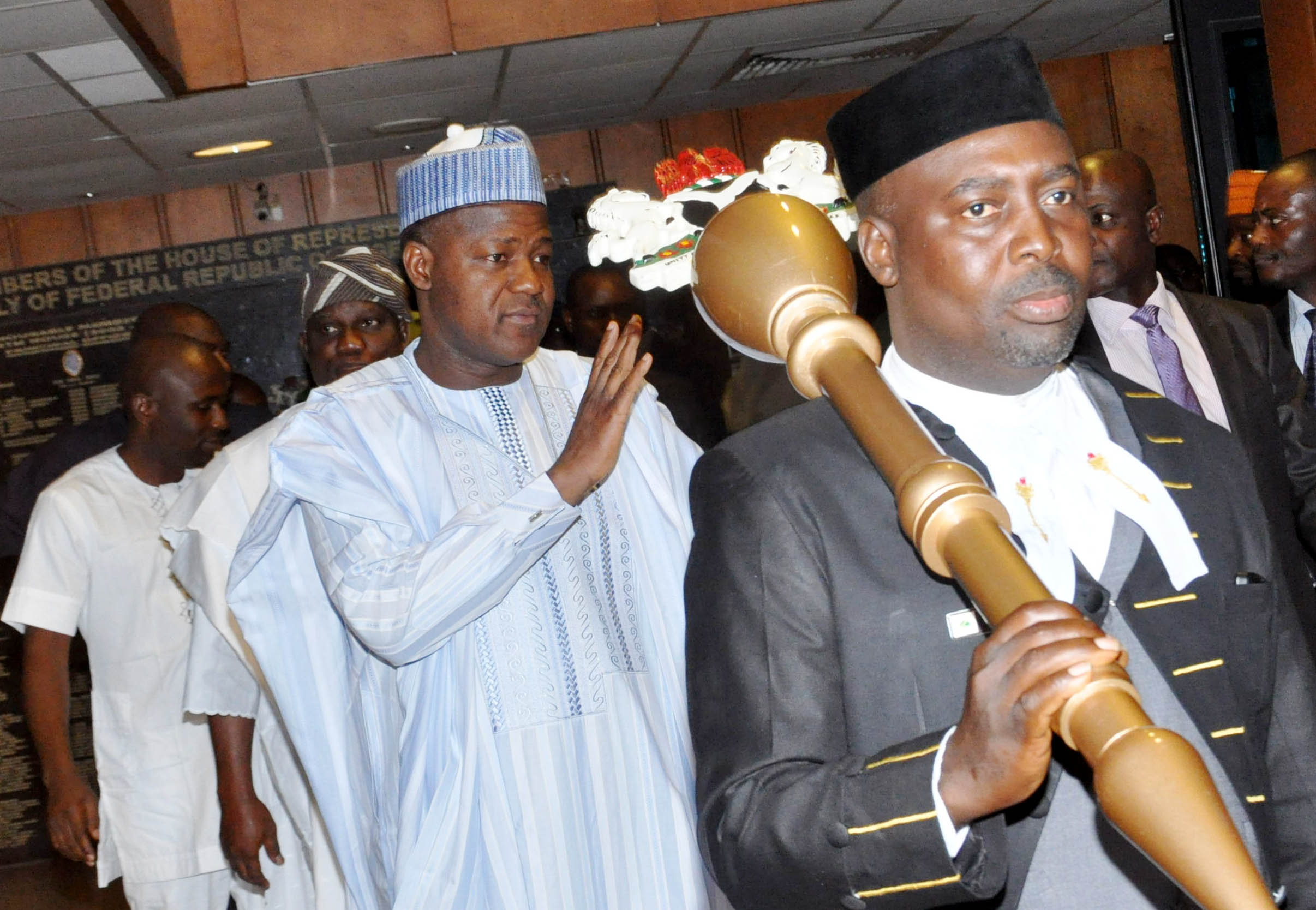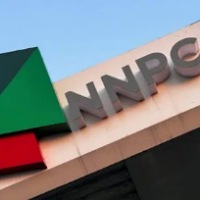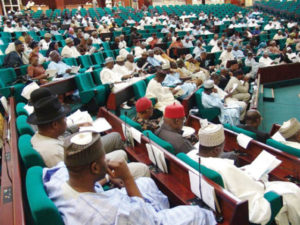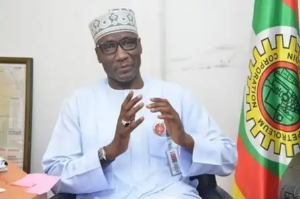Gas
NLNG Act amendment: when ignorance becomes the order of the ‘House’

By Yemie ADEOYE
“Beware of false Knowledge; it is more dangerous than ignorance”- George Bernard Shaw, 1856-1950
HOUSTON, Tx-IT is no longer news that the Nigerian lower parliament, popularly referred to as the Federal House of Representatives have passed a bill to amend the Nigerian Liquefied Natural Gas, NLNG, Act also known as the Fiscal Incentives, Guarantees and Assurances Act.
What is news however is the flagrant display of ignorance by a supposed august body of lawmakers and their decision to take this frightfully unpopular decision for the primary and sole purpose of increasing the finances and taxes accruable to the Niger Delta Development Commission, NDDC, an Agency of government saddled with the responsibility of developing the oil rich Niger-Delta region both in infrastructure and human capital.
While this move by the House of representative may seem patriotic on the surface, a deeper and careful study of the development reveals otherwise.
The NDDC which the lawmakers pretentiously claim to be concerned about was established also by an Act of parliament just like the NLNG and is by no means in want or need as it already receives the following benefits.
The equivalent of 10 per cent of the total monthly statutory allocations due to member states of the Commission from the Federation Account; 50 per cent of the 13 percent of the revenue accruing to the Federation account under subsection (2) of section 162 of the Constitution of the Federal Republic of Nigeria 1999, deductible at source.
The NDDC also receives by virtue of the Act establishing it 0.5 per cent of the total annual budget of any oil producing company operating, on shore, in the Niger-Delta area; 50 per cent of monies due to member States of the Commission from the Ecological Fund; such monies as may from time to time, be granted or lent to or deposited with the Commission by the Federal or a State Government, any other body or institution whether local or foreign. Now several industry watchers have continued ask a fundamental question which the lawmakers apparently never considered.
“With all these monies mentioned above accruing to the NDDC, how come the Niger Delta is still in such a sorry state and an eye sore when it comes to infrastructural and environmental development? Is it the controversial 3 percent tax deductions from the NLNG that is expected to transform the Niger Delta region? NLNG is jointly owned by NNPC, Shell, Eni, and Total and these companies already pay dues to the NDDC as required by law, how can the NLNG an offshoot of these companies be taxed for the same NDDC without resorting to double taxation which is morally unjust and ethically lopsided? All these are simple questions begging for answers.
However, The NLNG remains the best thing to happen to the Nigerian gas industry haven reduced gas flaring activities in Nigeria from 65% at inception to below 20% today, while growing the Nigerian LNG business to the envy of the world with the largest LNG fleet in the whole of Africa.
This latest move by the Federal House of Representatives to rewrite the law which was crafted by far more cerebral Nigerians at the time is very worrisome because of the danger it portends for Foreign Direct Investments into the country. Prospective investors are certainly observing this anomaly and the question on the lips of these ones is simply, how are we sure any agreement with us and our investment would be respected in view of this flagrant disregard for an agreed procedure backed up by law?
Without the shadow of a doubt, the Nigerian Liquefied Natural Gas, NLNG, is the best example of a successful public/private partnership in the Nigeria. The company has existed since its almost three decade lifespan without a single financial scandal of any sort, unlike other federal government agencies and parastatals.
The company is the only PPP in the country to sign on to the United Nations Global Compact (UNGC), the world’s largest voluntary corporate responsibility initiative with business and non-business participants from 160 countries across the globe just in an effort to remain financially transparent with professional and incorruptible workforce.
The NLNG has contributed and continue to contribute immensely to the Nigerian economy. It has since inception continued to pay applicable taxes, levies and charges to local, state and federal tiers of Government amounting to well over $5.5 billion. This is aside about $15 billion already paid in dividends to the Federal Government through the NNPC. In addition, the company operates a robust corporate social responsibility programme, considered a model by the rest of the oil and gas industry.
The programme has cost about 200 million US dollars to date and extends to areas including business and human capacity development and infrastructure development in our primary areas of operation and across Nigeria. It is instructive that NLNG was operating a Nigeria scholarship scheme even before it exported its first cargo in 1999/2000.
More recently, the company has spent 12 million US dollars to donate engineering laboratories and equipment to 6 universities across Nigeria’s geo-political zones, to support science and technology teaching and research.
In addition, NLNG currently supplies 40% of the nation’s cooking gas (LPG) while also providing scholarships to Internally Displaced Persons (IDPs) in the North-East of the country. The NLNG has reduced gas flaring in Nigeria from 65% at inception to below 20% today. Now, the big question begging for an answer is who tampers with such an organisation, who really does that?
At the recently concluded offshore technology conference here in Houston, Texas, the minister of state for petroleum resources Dr. Emmanuel Ibe Kachikwu who has been wooing investors alongside the Governor of Bayelsa state, Seriake Dickson stated in support of the NLNG that it is a no brainer for anyone to conceptualise what the House of Reps has embarked upon with regards to the NLNG Act.As far as the technocrat is concerned you don’t change a winning team. You don’t even tamper with its formation. NLNG has an Act of the national assembly backing up its establishment, and that must be respected if we don’t want to appear ridiculous in the eyes of the world.
As a Nigerian citizen, I’ve often wondered why members of the National Assembly, especially the House of Representatives are hardly ever respected by Nigerians.
Whenever they speak or act one gets a sense of lack of seriousness or a frightful disconnect from the people they represent or the realities of the present day.
According to Jerry Ugoeli, an independent research analyst here in Texas, “When they speak you are never motivated or encouraged. There is nothing on record that has been said by these folks that can be quoted either today or in the future. When they speak they neither incite nor excite.
When they engage in fisticuffs it is never for the sake of the masses. Their major concern has always been issues of personal interest. Sadly however, these folks are so empowered by the constitution that no major development can be achieved in the country without them but do they even realize this fact? And does it move them at all?” He queries.
It is high time the lawmakers rise up to their job in the most professional manner rather than placing politics and personal gains above common sense.
The least expected of this supposed august body is to get schooled on realities in the oil and gas industry both globally and locally, this they could achieve by engaging either consultants or core industry stakeholders professionals in a bipartisan manner in the interest of the truth, common sense and the country.
Yemie ADEOYE a Publisher, industry analyst and host of the Energie Platform show writes from Houston Texas.
Gas
Platform Petroleum targets a billion-dollar investment

Announces ambitious expansion plans
Platform Petroleum says the company is targeting a billion-dollar investment as it announces an ambitious strategic plan to bring 3 marginal fields into production by 2025, with a target of 10,000 barrels of oil and at least 50 billion standard cubic feet of gas per day.
Speaking on the sidelines of the 2024 Offshore Technology Conference (OTC) in Houston, USA, Chief Dumo Lulu-Briggs, Chairman of Platform Petroleum said that the company has scheduled a roadshow in London this June 2024 to raise extra funding to finance their ambitious expansion plans.
“The upcoming roadshow aims to attract equity partners and prepare for future opportunities, targeting a billion-dollar investment. We are seeking partners ready to invest in Nigeria’s oil and gas potential.
Our goal is to showcase the country’s vast opportunities and its potential to international investors” Lulu-Briggs said.
Platform Petroleum’s roadshow in London will highlight the company’s efficient production, upgraded flow stations, increased capacity, and achievements in nearly zero emissions.
With about one percent gas flare currently, Platform aims for zero gas flares by the last quarter.
“Nigeria is a vast market, and Platform Petroleum is thinking big. With the government’s ambitious plans, such as the Lagos-Calabar coastal line, Platform is poised for growth; pushing itself to the next level, building on a strong foundation and following Seplat’s successful precedent”, Lulu-Briggs said.
Despite being a small company, he emphasized that Platform Petroleum has demonstrated significant success and efficiency, showcasing that smaller oil and gas entities can indeed achieve remarkable feats adding that he believes that the company deserves recognition and more assets.
“Platform Petroleum is ambitious, aspiring to become a tier-1 company akin to international oil companies (IOCs) or a tier-2 company like Seplat. Interestingly, Seplat originated from Maurel & Prom, Shebah Petroleum, and Platform Petroleum, and today stands as a major player in the industry.
This history underlines Platform’s potential for substantial growth”, Lulu-Briggs said.
Furthermore, the Platform Petroleum Chairman said that the Offshore Technology Conference (OTC) is a crucial event for promoting Nigeria’s significant market potential.
“Partnering with the Petroleum Technology Association of Nigeria (PETAN) at OTC is key to attracting investment. The current proactive government understands the necessity for economic growth, and Platform is prepared to leverage every opportunity in the oil and gas industry to contribute to this expansion”, he concluded.
Breaking News
NNPC JV Unveils New Crude Oil Grade ‘Nembe’, Commences Exports With 1,900 Barrels

Precious ADELOLA
The NNPC/Aiteo Joint venture has announced the introduction of Nembe Crude Oil Grade, a new crude oil grade into the international crude oil market.
The announcement of the Nembe Crude Oil Blend, produced by Aiteo, the Operator of the NNPC/Aiteo Oil Mining Lease (OML) 29 Joint Venture (JV), was made at the ongoing Argus European Crude Conference in London, on Tuesday.
OML 29, an asset located onshore Nigeria, is operated by Aiteo Eastern Exploration & Production Ltd, Africa’s leading indigenous hydrocarbon producer, following a historic acquisition from Shell in 2014.
The Nembe Crude was previously blended with the popular Bonny Light grade and exported via the Bonny Oil & Gas Terminal.
The unique selling point of the Nembe Crude Oil grade with an API gravity was highlighted by both the Aiteo E & P and NNPC Limited Leadership at the Argus Conference in London.
The Nembe Crude Oil grade also has a low sulphur content and low carbon footprint due to flare gas elimination, fitting perfectly into the required spec of major buyers in Europe.
Two cargoes of 950,000 barrels each of the Nembe Crude Oil grade have since been exported to France and the Netherlands. With its attractive Assay of API 29 and low sulphur content, the Nembe Crude Oil grade commands a premium to the global Brent benchmark.
With the NNPC-Aiteo OML 29 JV back on-stream, Nigeria now boasts of an additional crude oil export of 2 Cargoes at 950,000 barrels each per month and 1.2 Bcf of export gas monthly.
This remarkable achievement signals the commencement of activities at Nigeria’s newest crude oil terminal, the Nembe Crude Oil Export Terminal (NCOET), which was licensed in line with the extant laws and Crude Oil Terminal establishment regulations.
The terminal was conceived as a Floating Storage and Offloading Vessel (FSO) with a storage capacity of two (2) Million Barrels and the ability to offload crude oil to any export tanker from AFRAMAX to Very Large Crude Carriers (VLCC).
It has a loading capacity of 25,000 barrels per hour and will be exporting over 3.6 million barrels of Crude oil monthly at full scale of operation.
Currently, hydrocarbon production from OML 29, which was hitherto constrained due to evacuation challenges owing to the security issues around the Nembe Creek Trunk Line (NCTL) corridor, has now been resolved through a collaborative and creative approach that led to the innovation of the Alternative Crude Oil Evacuation Solution.
The Argus European Crude Conference 2023 in London is a gathering of energy majors, refiners, NOCs, traders, financial institutions, and other representatives from across the global oil markets. The event also provides a critical opportunity for business leaders to connect, discuss, share and learn from one another.
Business
NNPCL, NCDMB, Oil Majors Agree Improved Efficiencies

Modupe Asudo
Major players in the oil and gas sector in Nigeria led by the Nigerian National Petroleum Company Limited (NNPCL) have covenanted to optimise operations by reducing contracting cycle to not more than 180 days.
A statement issued by the company disclosed that the Memorandum of Understanding (MoU) to this effect was endorced on Monday in Abuja at the company’s head office.
Other parties to the the contract include, the Nigerian Content Development and Monitoring Board, (NCDMB) and international oil companies.
Biztellers reports that an optimised contracting cycle was expected to improve the ease of doing business, reduce cost and drive efficiency, which would eventually translate to production growth, increased revenues, and ultimately improved profitability.
In addition, the MoU was expected to contribute significantly to the double-digit economic growth rate agenda of the Federal Government and generate value for all stakeholders, including investors, companies, host communities and Nigeria.
Notable elements in the framework of the MoU, going by the statement, included a reduction of the contracting cycle for open competitive tender, selective tender, and single sourcing tender to 180, 178, and 128 working days respectively.
This was in contrast with the current best effort performance of 327, 333, and 185 working days respectively.
According to Group Chief Executive Officer, NNPCL, Mele Kyari, signing the agreement portends exciting times for Nigeria’s oil and gas industry, in addition to standing as a bold testimony that the company was plunging into the future of hope, productivity and success.
Kyari, represented at the occasion by Executive Vice President, Upstream, NNPCL, Oritsemeyiwa Eyesan, pointed out that with oil and gas as the bedrock of Nigeria’s economy, there was need to get the contracting process in the Industry right so as to get the economy back on track.
In his remarks, Executive Secretary, NCDMB, Simbi Wabote, described the MoU as a way forward and a critical step towards enhancing the nation’s crude oil production.
















